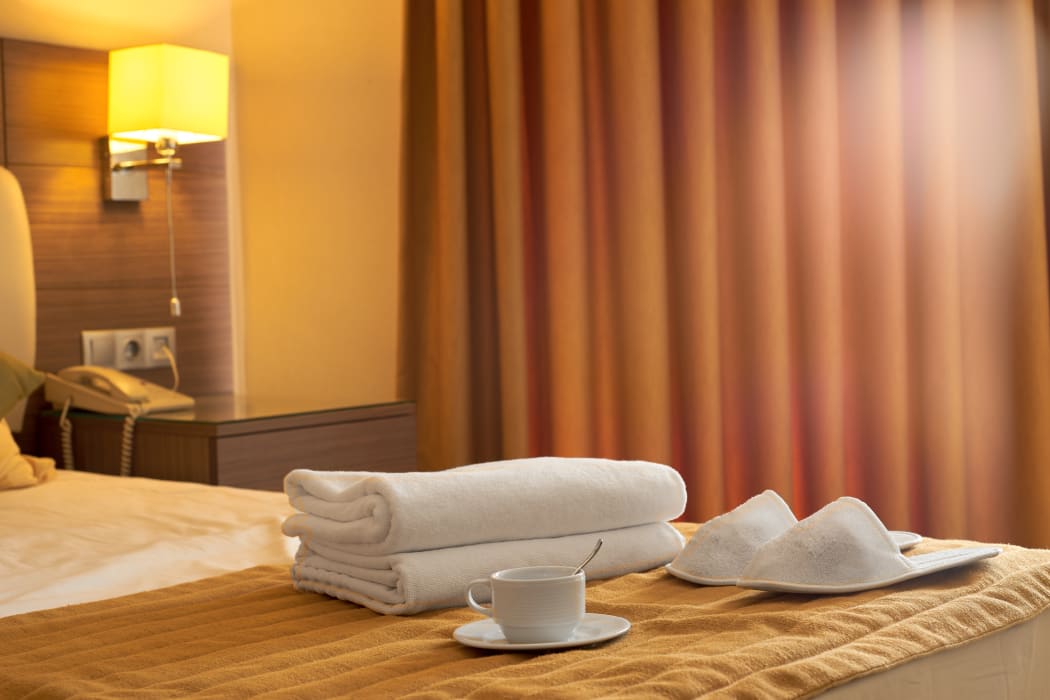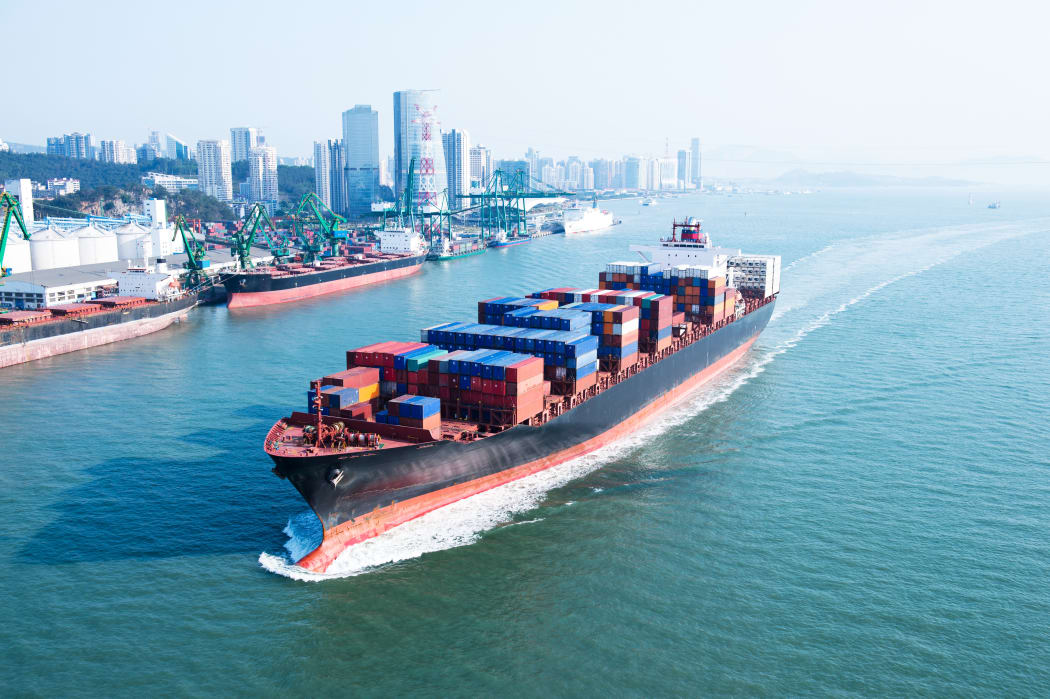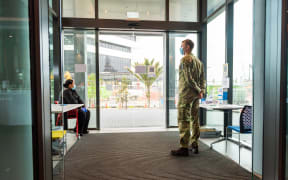Seafarers stranded outside the country are seeking unrestricted access to managed isolation.

Seafarers are missing out on MIQ rooms because they only get a few days' notice about leaving their vessels. (file pic) Photo: 123RF
While there are managed isolation and quarantine (MIQ) rooms set aside for air crew and seafarers who have been in New Zealand waters, people who work in foreign waters must book their stay using the Managed Isolation Allocation System.
They say they're missing out on spots, getting stuck overseas and forgoing seeing their families for months because they don't know very far in advance when they will disembark their vessels.
Rainer Hillberg said he had spent eight months away from his wife, baby and stepson to keep his job as a 'fly in, fly out' second engineer on a ship off Western Australia.
He usually works about five weeks at a time before travelling to his family in Nelson for about five weeks' break, until the requirement to spend two weeks isolating in each country took a major chunk of his free time.
On top of that, he said he only finds out the date he will disembark about a week beforehand - by which time New Zealand's border hotels are usually fully booked for weeks.
"If I could at least just book a flight and say, 'this is it, here I am, I'm an essential worker, please put me in managed isolation', that would make life a lot easier," he said.

Seafarers say they should be regarded as essential workers with ready access to MIQ facilities once they leave their vessels. (file pic) Photo: 123RF
Marine engineer David Reid works on a similar rotation in locations around the world and has also been bunking down in Australia, unsure when he will see his family again.
MIQ hotels here are fully booked until June.
"I'm starting work on the 15th March coming up and then I don't know when I'm going to finish. It will be some time towards the end of April but I don't know when. So it just doesn't work with the lead-in periods that we're having to deal with for the isolation allocation scheme currently," he said.
"Probably the best we can hope for is to have a little more access to some of these rooms that they're keeping back for contingencies. We don't know, from the start of our trip, or even the middle of our trip what day we'll be getting off and then when we get off, we don't know what flights are available."
Offshore geotechnical engineer Nathan Shumacher said even when seafarers could book in advance, last minute delays to crew changes sometimes caused people to miss their bookings.
Yet the Ministry of Business, Innovation and Employment said allowing them to book at short notice would mean leaving rooms unoccupied, displacing other travellers.
"Demand for rooms in managed isolation remains very high. MBIE aims to ensure rooms are well utilised in order to maximise the number of returnees we can support back into New Zealand," it said.
The ministry said the small number of spaces for air and maritime crew operating in and out of New Zealand was a "legal obligation".
Shumacher wanted the government to recognise people working on foreign ships too, to acknowledge them as New Zealand taxpayers doing important work.
He knew of about 40 seafarers in similar situations, including many still stuck overseas.
"It's a really unfair situation I believe, where they've just been forgotten about and ignored and put to the bottom of the pile, when there's clear evidence saying that they're meant to be recognised as essential workers," he said.
"They're out there working, keeping supply lines around the world open. Medical equipment, cars, the phones we're talking on right now - the majority of it came to us here in New Zealand on ships."
Rainer Hillberg wrote to his local MP, Labour's Rachel Boyack, asking for help.
A reply from her office suggested he should think about "whether you would prefer to carry on as you are, or consider coming back to NZ and working in another field until the borders open up again".
He said that was a "really, really poor and bad answer".
"It's a highly qualified job. With my current company I have ten years seniority. If I leave this employment, for one thing, I wouldn't get any sort of severance payment. The next thing is when things maybe go back to normal or better it would take me years to get that sort of employment again," he said.
MBIE aware of concerns
The Ministry of Business, Innovation and Employment said it was aware of the concerns from shipping crew and was continuing to refine its system for allocating MIQ space.
For now it suggests people get in touch with its contact centre if they need to make changes to a booking, and apply for emergency allocation if they are unable to legally remain in their current location, or have no other option but to return to New Zealand.
Although its daily updates show space in the hotels, it said rooms are occupied for a minimum of 14 days with additional time needed for cleaning and maintenance.
"As such, when looking at room availability we need to consider this full 14-day period as opposed to room occupancy on any single day. Rooms that are vacant today may be needed for an incoming flight tomorrow, so are not actually available.
"Travellers cannot therefore make a booking within a week of arrival or change a booking date unless there is available space in [the Managed Isolation Allocation System]."






